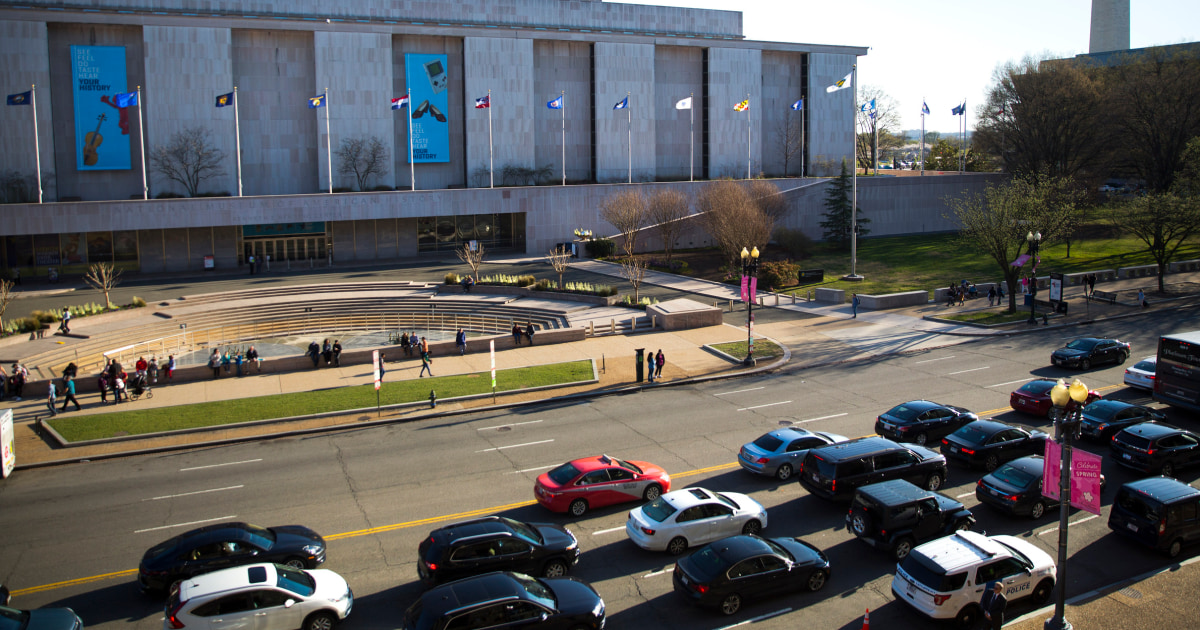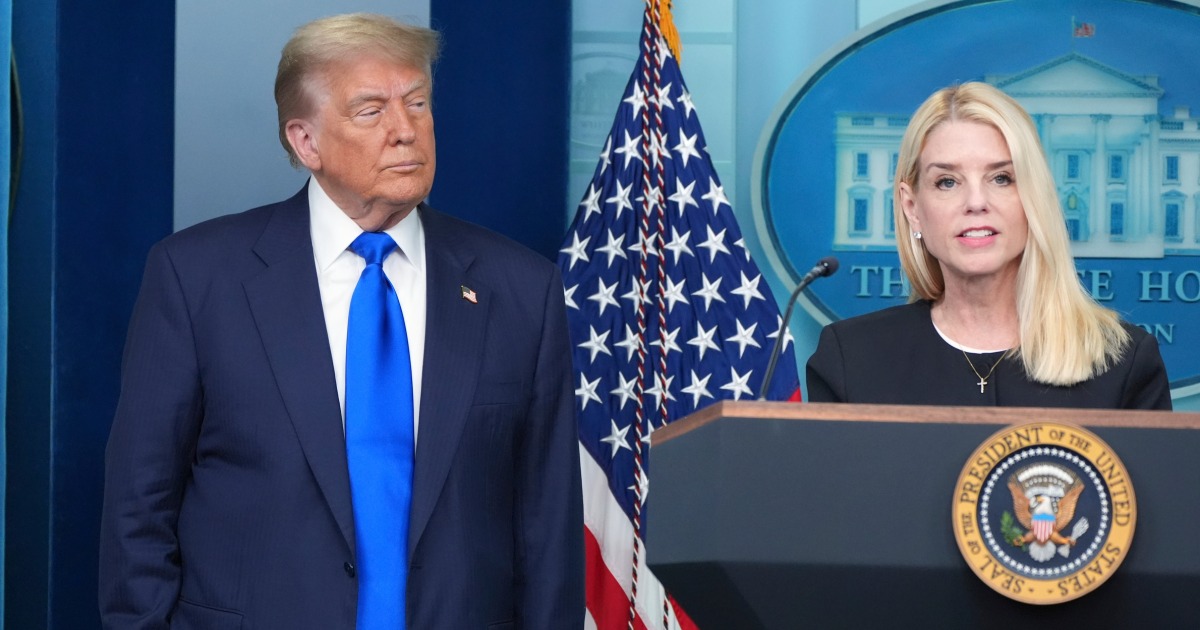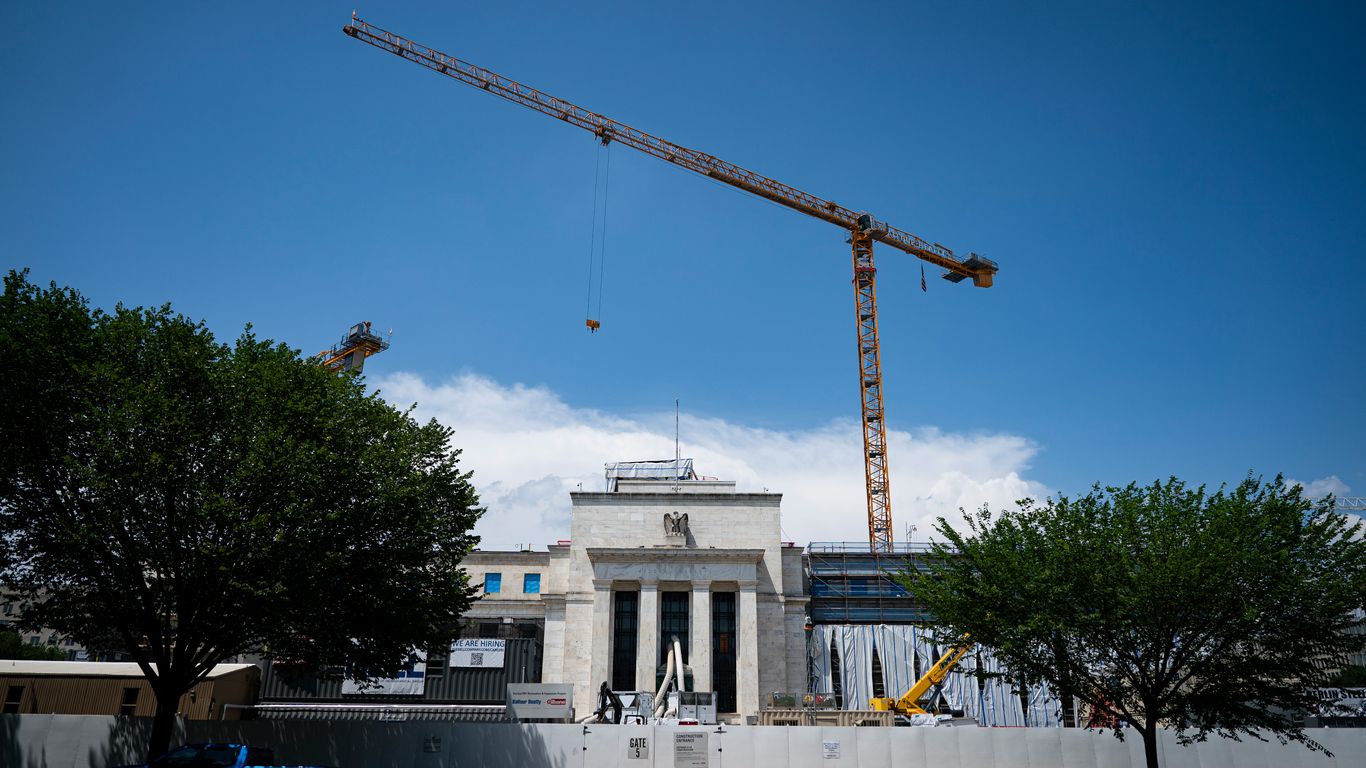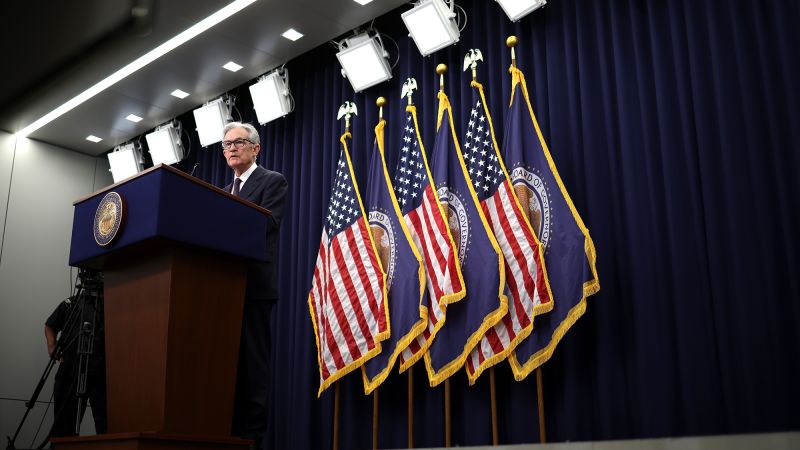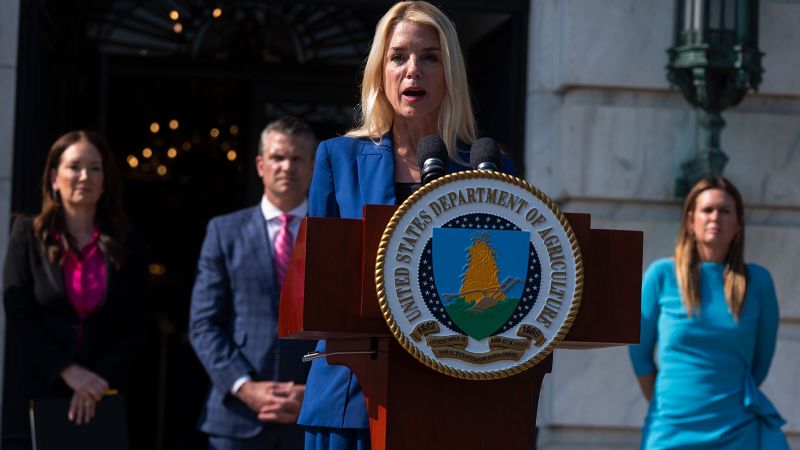White House Ends Sanctuary Policies in Washington D.C.
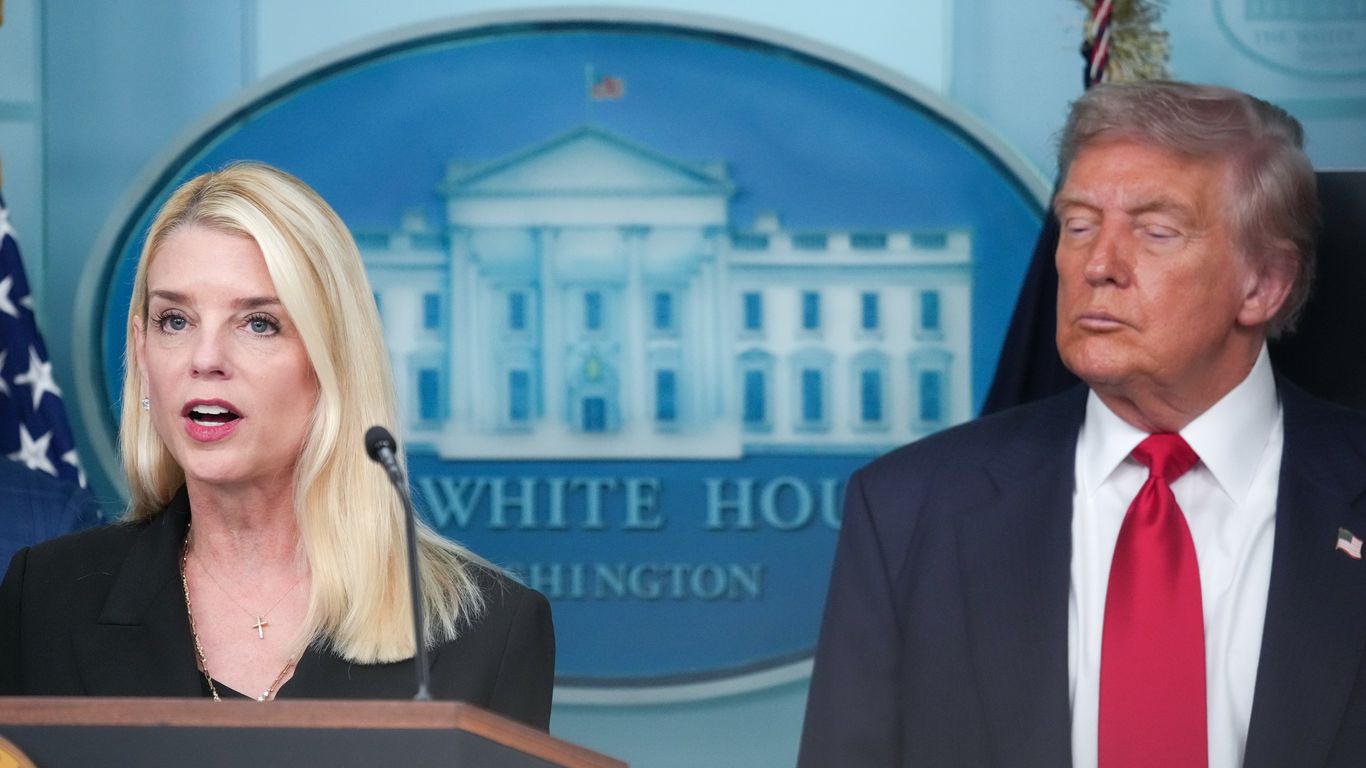
Introduction
The White House has announced that Florida Attorney General, Pam Bondi, has officially ended sanctuary policies in Washington D.C. This news comes as part of a wider directive issued by Bondi, where she also appointed DEA chief Terry Cole as "emergency police commissioner." This move aims to crack down on illegal immigration and ensure the safety of citizens in the nation's capital.
Impact of the Directive
Bondi's directive is a significant step towards ending sanctuary policies in D.C. and strengthening the country's immigration laws. With the appointment of Terry Cole, the city will now have a dedicated emergency police commissioner to handle immigration-related issues. This will not only help in identifying and detaining illegal immigrants but also ensure that they are deported, making the city a safer place for its citizens.
Implications for the Country
The end of sanctuary policies in Washington D.C. is a major victory for the Trump administration, which has been pushing for stricter immigration policies. This move not only sets an example for other cities but also shows the administration's commitment to enforcing the law and protecting its citizens. The appointment of an emergency police commissioner sends a strong message that the government is taking proactive measures to address immigration issues and will not tolerate illegal activities in the country.
About the People Mentioned
Pam Bondi
Pam Bondi is an American lawyer and politician who currently serves as the 87th Attorney General of the United States, having been sworn in on February 5, 2025. A fourth-generation Floridian from Tampa, Bondi earned a Bachelor of Arts in Criminal Justice from the University of Florida and a Juris Doctor from Stetson University College of Law. She spent more than 18 years as a prosecutor in Hillsborough County, handling cases ranging from domestic violence to capital murder. Bondi was elected Florida’s 37th Attorney General in 2010, becoming the first woman to hold the position. She served two terms from 2011 to 2019, during which she gained national recognition for her efforts to combat human trafficking, opioid addiction, and fraud. In her first legislative session, she led reforms that shut down 98 unscrupulous clinics contributing to the opioid crisis. She also chaired the Florida Statewide Human Trafficking Council and was appointed to President Trump’s Opioid and Drug Abuse Commission. Bondi played a prominent role in multistate lawsuits against pharmaceutical companies and led a legal challenge to the Affordable Care Act. She was a vocal supporter of President Donald Trump, joining the White House Counsel’s Office in 2019 and serving on the legal defense team during Trump’s first impeachment trial. After leaving public office, she became a partner at the lobbying firm Ballard Partners and held leadership roles at the America First Policy Institute. Bondi was nominated by President Trump to serve as U.S. Attorney General following the withdrawal of his initial nominee, and she was confirmed by the Senate in February 2025. Her career has been marked by a focus on criminal justice reform, public safety, and conservative legal advocacy.
About the Organizations Mentioned
White House
The **White House Office** is a central organizational component within the Executive Office of the President of the United States (EOP), tasked with supporting the President in managing day-to-day operations, policy formulation, and political affairs. It is headed by the White House Chief of Staff and staffed by senior aides who report directly to the President, including those with titles such as Assistant to the President and Deputy Assistant to the President. These staff members are mostly political appointees without the need for Senate confirmation, allowing the President considerable discretion in shaping the office to suit each administration's priorities[1]. Historically, the White House Office was established in 1939 through Reorganization Plan 1 and Executive Order 8248 to provide immediate assistance to the President. It functions as the nerve center for presidential staff, physically located primarily in the West Wing, and plays a pivotal role in managing the President’s policy agenda, communications, and political strategy. Its flexible organization allows each President to tailor the staff composition and roles according to their governance style and objectives[1]. In the current context of 2025, the White House Office operates under the administration of President Donald J. Trump, who returned to office after the 2024 election. His administration emphasizes rejecting prior policies deemed extremist and focuses on enhancing quality of life, economic growth, and American energy dominance. The administration includes Vice President JD Vance and First Lady Melania Trump, among others, with a Cabinet advising on various governmental functions[4][6]. Recent initiatives linked to the White House’s operational sphere include the establishment of a new **Department of Government Efficiency (DOGE)** aimed at modernizing federal technology and software to boost government productivity. The DOGE agenda is implemented through the renamed United States DOGE Service within the Executive Office, reflecting a concerted push to leverage technology for administrative modernization[5]. Notably, the White House Office also coordinates national security and homeland security functions through the National Security Council staff, underscoring its central role
DEA
It appears there might be confusion regarding the organization "DEA." However, based on the search results, it seems you might be referring to the "Digital Entertainment Group" (DEG), which is a prominent organization in the entertainment technology sector. Here's a summary of DEG, as there is no information available about an organization named "DEA" in the context provided: ## About the Digital Entertainment Group (DEG) The **Digital Entertainment Group (DEG)** is an organization that advocates and promotes entertainment platforms, products, and distribution channels supporting the movie, television, audio, consumer electronics, and IT industries. DEG's primary objectives include connecting key industry players, providing insights on emerging trends, supporting marketing initiatives, and implementing standards for the digital supply chain. ## History and Objectives DEG was not specifically mentioned in terms of its founding year in the search results. However, it has been involved in promoting digital entertainment formats and distribution models for several years. The organization focuses on driving revenue for its members by facilitating collaboration between content providers, device manufacturers, and service providers. ## Key Achievements - **Industry Collaboration**: DEG fosters alliances like the Direct-to-Consumer Alliance (D2CA) and the Advanced Content Delivery Alliance (ACDA), which aim to enhance content delivery and consumer experiences. - **Emerging Trends**: It provides members with cutting-edge knowledge on emerging trends and technologies to prepare for industry growth. ## Current Status DEG continues to play a significant role in the entertainment industry by promoting new distribution models and formats. It has international sister organizations, such as DEG Europe, DEG Nordic, and DEG Japan, which help maintain global consistency in messaging. ## Notable Aspects - **Leadership**: DEG has a diverse leadership team from major companies like Google, NBCUniversal, and Paramount Pictures. - **Global Reach**: With its international sister organizations, DEG maintains a strong global presence in the digital entertainment sector. Overall,
